Your Cart is Empty
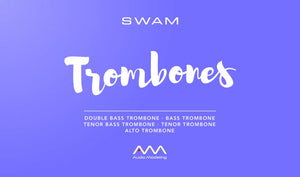
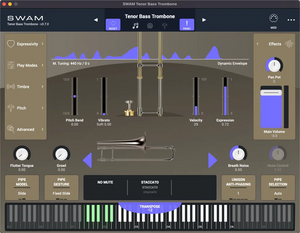
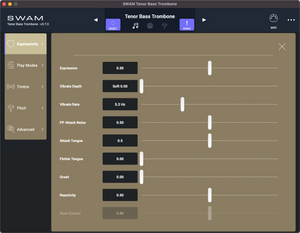
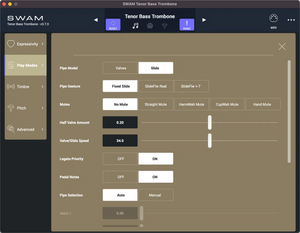
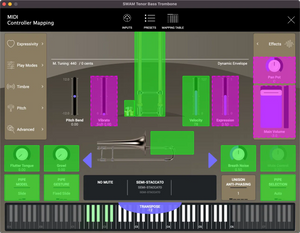
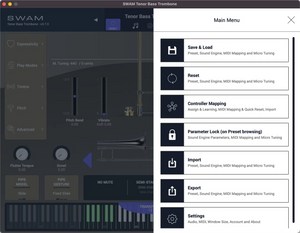
Audio Modeling SWAM Solo Trombones
Comprised of five types of trombones
$250.00
Description
This collection is comprised of five types of trombones:
Double Bass Trombone, Bass Trombone, Tenor Bass Trombone, Tenor Trombone and Alto Trombone
Physical Modeling allows all articulations typical of Trombones to be reproduced in real time, by acting on its main physical elements such as pipe length, breath pressure, and lip tension.
Independent control of the slide allows soft glissando's as well as ones with typical overtone triggers. Regardless, you can always choose between Slide or Valve mode.
START PLAYING FOR REAL
SWAM Engine digitally handcrafted acoustic instruments are never a simple recording of notes via sample libraries, but rather a set of real virtual instruments based on their traditional counterparts, and they allow you to control the expression of a virtual acoustic instrument: while a sample library repeats a pre-recorded sound, SWAM instruments play for real.
DIGITALLY HANDCRAFTED INSTRUMENTS
Developed by Audio Modeling using SWAM Technology, SWAM Trombones are real-time controllable via a MIDI controller and do not require any Giga-sized pre-recorded libraries, but only the smallest footprint to create the perfect organic consistency resulting from the endless expressive parameters that are unique of every live performance.
MAIN SCREEN
New UI, Clean & Easy
EXPRESSIVITY
Adjust the Sound to your Taste and Needs
PLAY MODES
Valves or Slides? How about Mutes?
TIMBRE
Endless combinations: find your own Sound
PITCH " MASTER TUNINING
Transpose & Pitch Bend Range
PITCH " MICRO TUNING
Play with your Style & Tune.
MIDI MAPPING
- Select the Control with One Touch
- Move your External Controller
- View, Edit & Reassign
- Advanced Curve Remapping
- All Settings in One Screen
- Dedicated Parameters for any Controller
Tech Specs
System Requirements
FORMATS - AU, VST, VST3, AAX 64bit
Mac OSX - 10.10 (Yosemite) 12.4 (Monterey)
WINDOWS - Windows 10, Windows 11
Install Size
Required space after installation: 276 MB for two plugins
RAM occupancy: about 80 MB for each instrument instance
CPU Load
The realism and expressiveness of the SWAM instrument requires a computer with at least a 1.6 GHz Core 2 Duo CPU for running a single plugin instance. Less powerful systems may also prove satisfactory, but may require larger buffer sizes, involving higher latencies.









